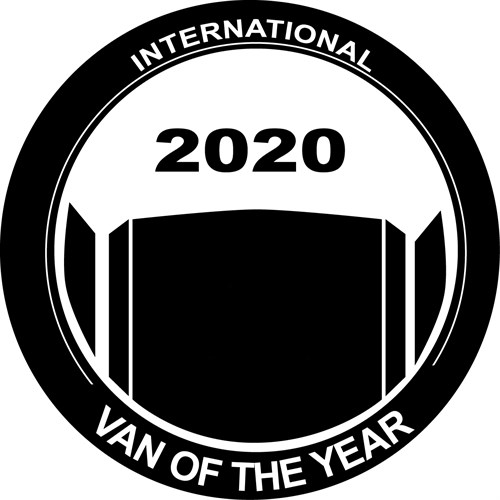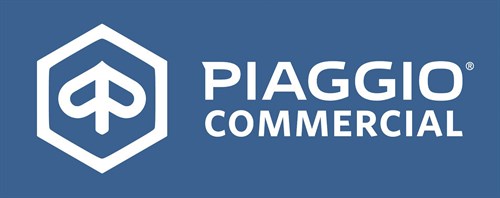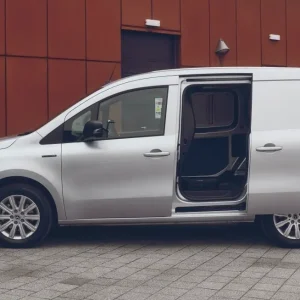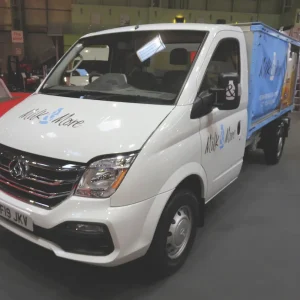Much has been made of Renault’s restructuring plans aimed at saving €2bn (£1.8bn). Job losses of 4,600 are planned in France alone, with a further 10,000 across the world. Of course, Renault is not alone in implementing some pretty drastic plans in the wake of the coronavirus pandemic, but on the light commercial vehicle side of the business at least, some pretty big decisions had already been made.
There’s been a change in leadership within the vans division at Renault with Ashwani Gupta being replaced as the head of the Renault-Nissan-Mitsubishi Alliance LCV Business by Denis Le Vot. Gupta now finds himself as chief operating officer at Nissan, while Le Vot, after little over a year in the job, has been promoted to the position of executive vice-president of Renault sales and marketing. While in the hot seat, both men presented a clear vision of the future for the Renault brand, but Gupta would candidly speak most often of the business strategy while Le Vot enthused about the exciting direction the products and services would take. The Renault Brilliance Jinbei Automotive Co. is a shining example of the vision Gupta had for the Alliance LCV strategy, while the last-mile delivery products like the EZ-Flex revealed under Le Vot’s tenure symbolise the daring experimentation the company hopes will provide the delivery solutions for cities of the future.
“This company [Renault Brilliance Jinbei] was built in 2017 thanks to Ashwani Gupta,” explains Thierry Plantegenest, vice-president global sales and marketing vans and pick-ups.
“We already presented our new focus on China, which is focused on LCV and electric vehicles, leveraging Renault know-how. The Chinese market is a huge market, more than 3.5 million vehicles per year, and forecast to maintain a steady upward path. The idea is that [in China] Jinbei is very well known – more than 1.5 million customers using a Jinbei car, and they’re selling 162,000 units per year. With Renault expertise, and the fact that we are a leader on LCVs in Europe, the idea is to modernise and extend the line-up.”
Plans are in place to establish a core model portfolio by 2025 and then begin exporting them to other regions, while Jinbei vans are already being sold in some Latin American markets like Peru, as well as Egypt.
“At this stage, we are working on putting know-how from Renault into their new models. We can bring some electric expertise. The key point is to be local – because if not we will be out of the market,” Plantegenest says.
Of course, the coronavirus has and will have an impact on global markets and sales expectations, but speaking ahead of Renault’s post-Covid organisational restructuring plans and cost savings, Plantegenest indicated that challenging times lay ahead: “The crisis will impact global vehicle production by six million units. These predictions are not very encouraging for us. The first challenge is the health and safety of our employees. That is a top priority – number one is be safe. Number two is put [plans] in place to restart the business. We will restart our plants in a few weeks, but [we are] also putting a lot of energy to support our customers and our network and reinforcing a lot of digital training because it is vital. We are selling a lot of vans by digital in many countries and it’s the new channel and one we have to improve on.”
In May, Renault introduced a new Online Stock Reservation tool on Renault.co.uk made available to both Renault car and Renault Pro+ van buyers to enable customers to reserve a vehicle from stock.
“We can imagine 10% or 20% of our sales by these channels,” says Plantegenest. “But this is just a beginning. Sometimes the professional customer has to test the van and one of the actions we are now trying to put in place is test drives of more than one week, in some countries. We are putting in new standards and methods for delivering a van and to repairing a van. We will change many things and maybe the demand will change too. We will have to be very flexible and very reactive.”
Technology is at the heart of this new direction Renault is having to take. Even before the coronavirus the manufacturer was talking of the next steps in matching customers to the right product. The importance of those systems has become even more relevant in a new world where sales channels are obstructed by social distancing.
“We have had many requests for information [on vehicles], and are putting in place many tools to ensure we have a good solution,” says Plantegenest. “We have a configurator, and another which is to help choose [the best-suited vehicle]. We are entering their job and we are proposing many solutions, and in the end it will be a Kangoo, a Trafic or a Master.”

The aim is to educate and advise the customer but ultimately lead them towards a Renault product that would suit their needs, but Plantegenest says there is much more to it than simply selling a van: “We can offer a full range of accessories and have the ability to offer the full service to our customer with in-house finance. We are not only selling a van, we are selling a solution. The product is the hardware and this hardware is the must-have. Now we are working on the ‘nice to have’, and that is the software, that is the tailor-made experience, and we are putting this in place, even in China. That is why we are putting a lot of energy into Renault Pro+.”
Investment in the dealer network has seen more than 660 Renault Pro+ sites created globally with the aim of bringing Renault’s expertise to local markets. While the coronavirus might have delayed Renault’s plans for China it certainly hasn’t stifled its ambition.
“In China we restarted the operation and the plant is now fully 100% manufacturing,” he says. “The forecast is the same level as last year. It’s a huge recovery plan that the Chinese government has put in place and we are making a lot of business. Ambulances is a big segment where we have a huge role to play with LCVs and Jinbei. There is a lack of volume for ambulances in China – we have made some deals with converters and will finish the ambulances. That is where the know-how of Renault comes in. We can make a tailored solution for our customers.”
New challenges lie ahead, and the new Renault Kangoo, due to be launched this year, will be of significant importance to the future health of Renault and its Pro+ ambitions. Although some delay is expected, according to Plantegenest, the Kangoo will be one of the main events of the year, but one that is perhaps set against a wider backdrop of change. Former Seat boss Luca de Meo will join the company in the summer, taking over as CEO, and Plantegenest reveals that more announcements will be made by the incoming executive. Until then, Renault’s core principles established under the watch of Gupta and Le Vot will guide the vans business through the coronavirus and onwards into new and exciting markets.
Comment: Special editions
It goes without saying that the sales of vans are down during the coronavirus pandemic. Registrations of new vehicles in the UK had fallen by 86.2% with only Spain (91%) and Italy (89.9%) faring worse. The average across Europe is much the same, with a 69.6% drop compared to April 2019, but despite the doom I see a ray of hope and it comes in an unlikely form: the special edition.
While these limited edition, or added value, variants will have been planned long before lockdown began, they now seem like a shining light in an otherwise bleak landscape. As dealers struggle to draw in customers amidst new social distancing rules, could the lure of a new Ford Ranger Thunder or a Fiat Ducato Shadow Edition be enough?
Speaking to a dealer just the other day, they told me that discounts will become increasingly hard to justify post-Covid and that while short term there might be bargains aplenty, in the long term it will be added value that will help close a deal. Special editions might now have a place after all.
George Barrow is the UK judge for the International Van of the Year, the prestigious prize awarded by leading European LCV journalists.
Sponsored by:






